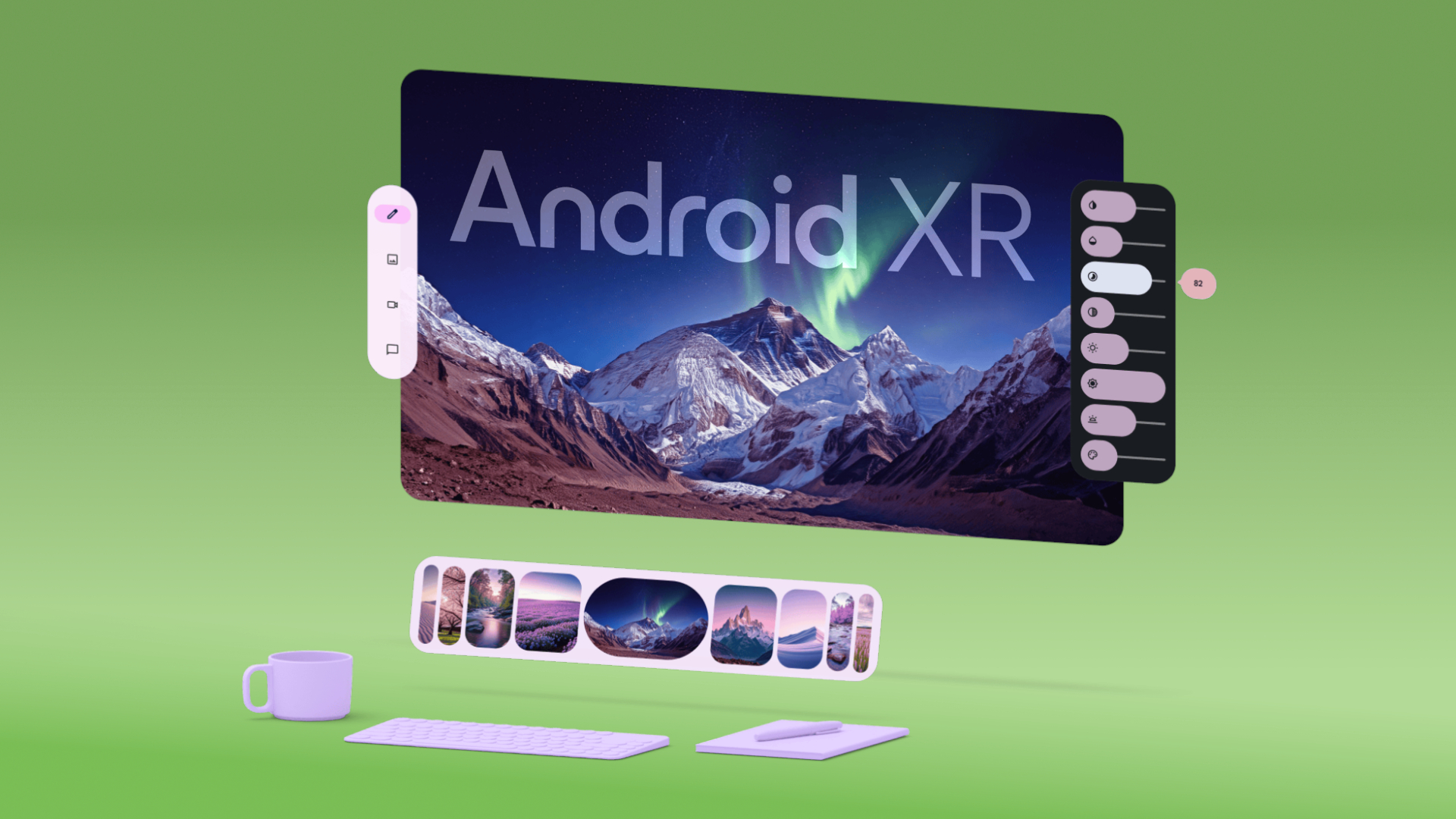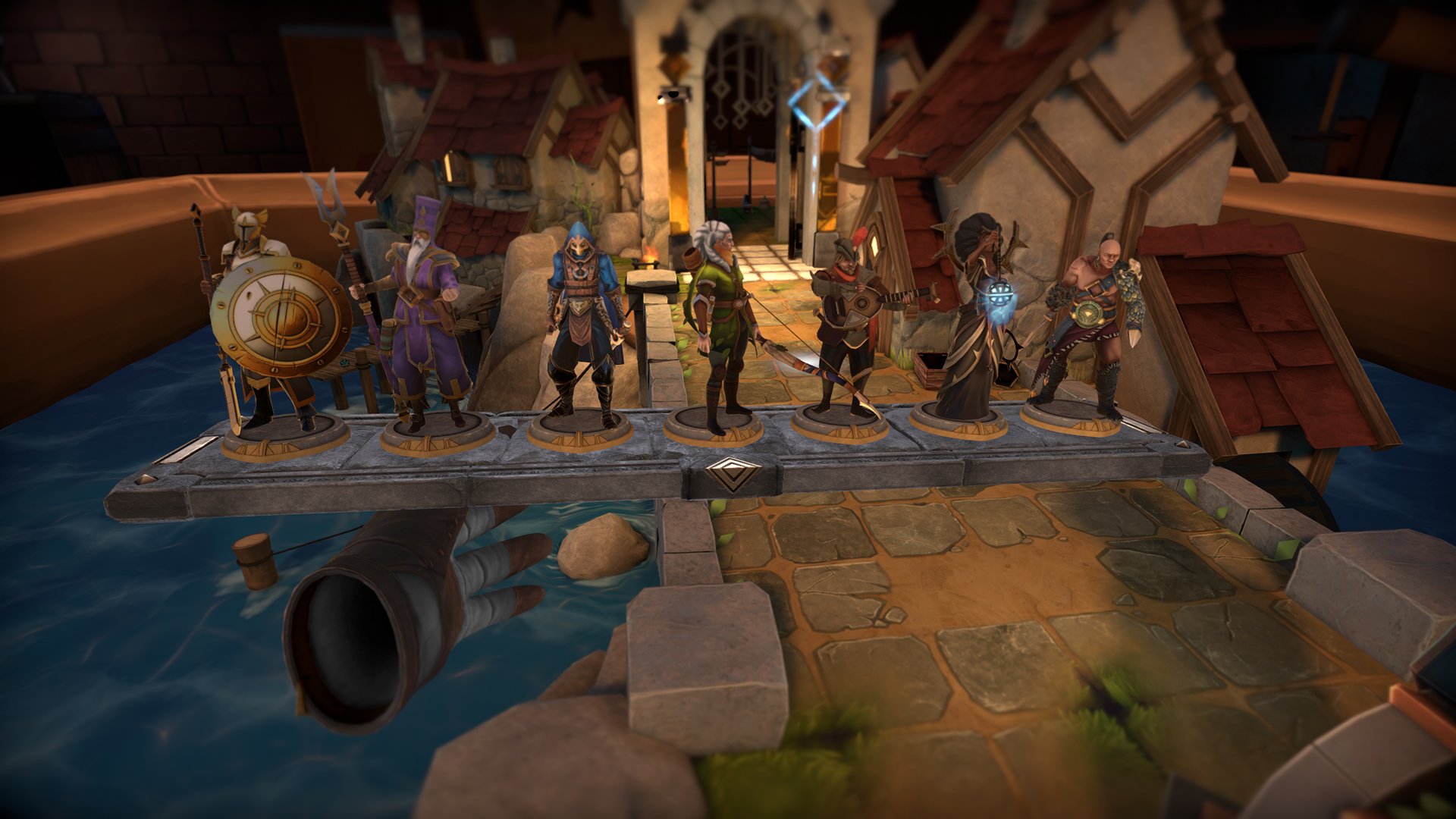A week on, Google's Android XR is stealing the VR/AR spotlight from Meta
Android XR is proving popular with software developers and hardware makers

Google's Android XR was only announced last week, but the mixed reality platform is already making a splash, securing software and hardware partners right out of the gate and impressively throwing down the gauntlet to Meta's Horizon OS.
While Meta's operating system has a clear head start, Google's promise of an open, unified platform (similar to the Android OS that powers smartphones, tablets, TVs, smartwatches, and even cars) offers a bright future for the consumer and enterprise XR market by delivering a true standard for all to benefit from.
Android XR has the potential to bring XR to a wide variety of XR devices, ranging from immersive VR headsets to AR glasses.
Johan Gastrin, CTO of Resolution Games
As Resolution Games, the developer behind the impressive digital tabletop RPG Demeo — one of the first games expected to arrive on Android XR through Samsung's Project Moohan headset, CTO Johan Gastrin tells Laptop Mag: "Android XR has the potential to speed up standardization in the XR space."
Android XR may be the rising tide that raises all boats, granting hardware manufacturers and software developers an even foothold from which to build. In turn, they're free to build customized experiences backed by a dependable library of tools and frameworks tailored to various devices.
Gastrin tells Laptop Mag, "Android XR has the potential to bring XR to a wide variety of XR devices, ranging from immersive VR headsets to AR glasses, all using the same ecosystem."
It's an enticing promise, and it's one that's already attracted the attention of developers like Resolution Games, not to mention potential hardware partners in Samsung, Sony, Lynx, and XREAL.
Android XR: An open challenge to Meta's monopoly
Announced on December 12, the Android XR operating system is poised to fuse mixed reality and artificial intelligence to power a new generation of VR headsets and smart glasses — in direct competition with Horizon OS, which powers Meta's impressive Quest headsets.
Get The Snapshot, our free newsletter on the future of computing
Sign up to receive The Snapshot, a free special dispatch from Laptop Mag, in your inbox.
It's a bold challenge to Meta's dominance in this space, but Google has a wealth of experience and a vast ecosystem in its corner heading into this fight. Resolution Games' Johan Gastrin tells Laptop Mag, "Sharing a common ecosystem across devices from multiple manufacturers is great for both developers and consumers."
In speaking of that ecosystem, Gastrin continues: "Android XR also has the benefit of having an existing portfolio of games and applications that will make the platform vibrant from the get-go."
Following Android XR's announcement, Resolution Games became one of the first developers in the XR space to announce it would be porting its most popular title to the platform.

While the impressive Demeo may be among the first games to join Google's new platform, we wouldn't expect it to be the last. Highlighting the ease at which developers can shift from a Meta-familiar landscape to Android XR, Gastrin tells Laptop Mag, "Both Android XR and Horizon OS adhere to OpenXR. That, plus us using Unity for the majority of our titles, makes the development process very similar."
That's good news for gaming hopefuls when it comes to Google's new platform. Aside from Demeo, many of Meta's most popular games are built using the Unity game engine, including Beat Saber, Bonelab, Walkabout Mini Golf, LEGO Bricktales, and even Batman: Arkham Shadow.
Both Android XR and Horizon OS adhere to OpenXR. That, plus us using Unity for the majority of our titles, makes the development process very similar.
Johan Gastrin, CTO of Resolution Games
The latter of those games is unlikely to make the switch due to it being a Meta Quest exclusive title, something that Android XR has yet to claim. When asked whether Resolution Games would be interested in developing exclusively for the platform, Gastrin tells Laptop Mag, "Right now we are focusing on taking Demeo to as many players as possible on whatever platforms they wish to play."
"We will continue to support as many XR platforms as possible, and the support for the OpenXR open standard from all major vendors have greatly improved our ability to do so."
Backed by hardware heavyweights
Clearly, Google's Android XR has an excellent opportunity when it comes to delivering great software. However, from what we know so far, Google won't be bringing Android XR to users through its own dedicated hardware — something Meta can rely on in pairing its Horizon OS platform with its Quest headsets.
However, while Google won't be supplying its own headsets or smart glasses, Android XR isn't short of interest from manufacturers looking to adopt the platform for their own devices.
As part of the Android XR announcement, Google revealed that Lynx, Sony, and AR smart glasses maker XREAL are all interested in making use of the platform to power future devices. one of which may be the XR head-mounted display showcased by Sony in January.
Meta also has plans to open Horizon OS for third parties, with Asus, Lenovo, and Microsoft all interested in adopting the platform, but little has been heard of this since its announcement in April.
Outlook
Having only been announced last week, already being lined up to appear on Samsung's future headset, and with many parties interested in bringing the platform to other devices, Android XR is off to a great start out of the gate.
It serves as an excellent expansion of the Android ecosystem and brings AI to the forefront of Google's vision for a mixed-reality future.
Whether the Android XR platform outpaces Meta's remains to be seen, but each provides the other with the necessary element to see innovation thrive: competition.
More from Laptop Mag

Rael Hornby, potentially influenced by far too many LucasArts titles at an early age, once thought he’d grow up to be a mighty pirate. However, after several interventions with close friends and family members, you’re now much more likely to see his name attached to the bylines of tech articles. While not maintaining a double life as an aspiring writer by day and indie game dev by night, you’ll find him sat in a corner somewhere muttering to himself about microtransactions or hunting down promising indie games on Twitter.
